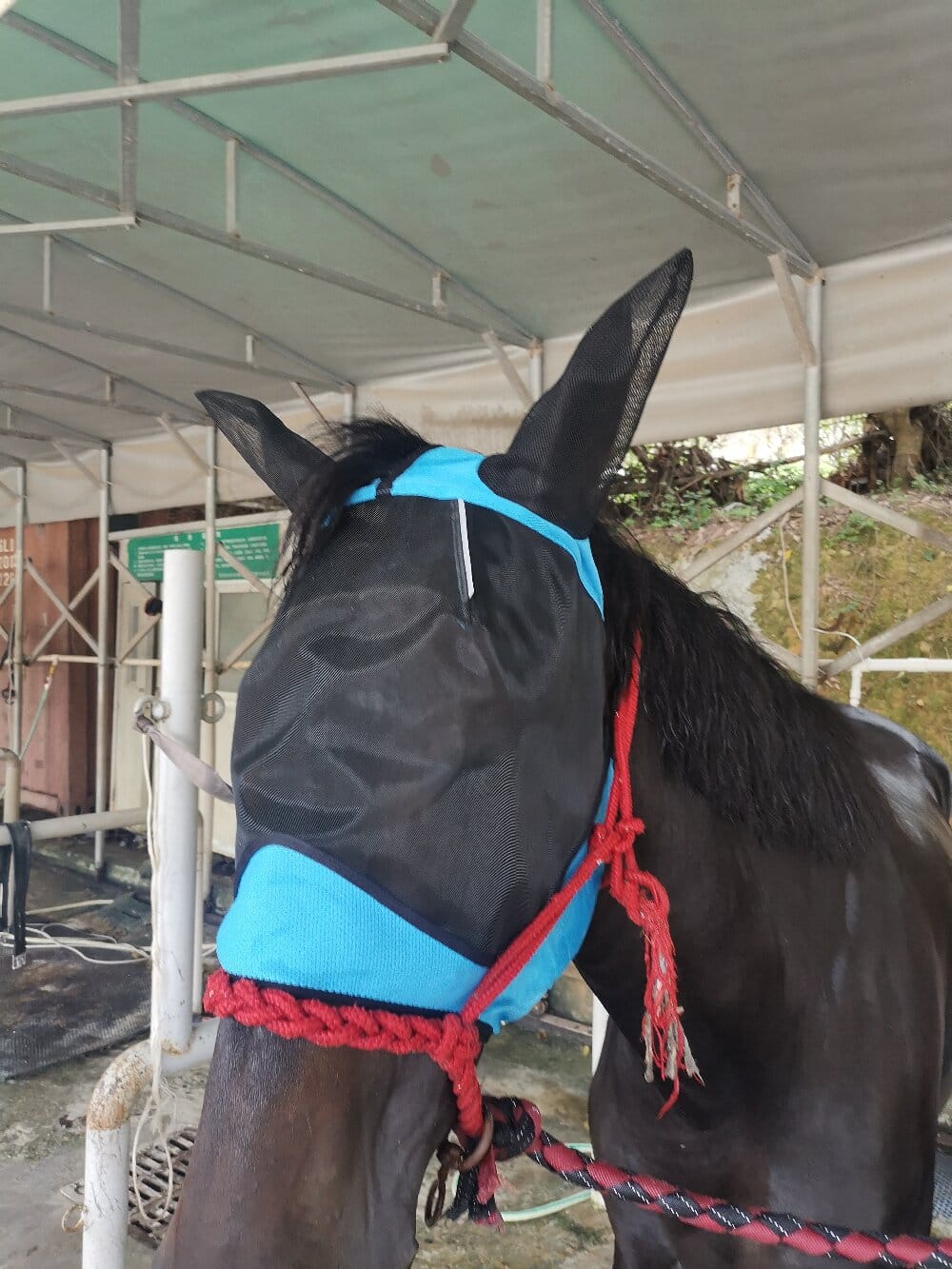A horse fly mask is an essential piece of protective gear designed to shield horses from irritating and potentially harmful insects. Flies, mosquitoes, and other pests can cause discomfort, stress, and even health issues for horses, making fly masks a critical tool for equine care. These masks are crafted from lightweight, breathable materials and often feature UV protection to safeguard the horse’s eyes and face from sun exposure as well. Whether used in pastures, during training, or at shows, a high-quality fly mask ensures the horse remains comfortable and focused.
Key Features of an Effective Horse Fly Mask
When selecting a horse fly mask, several features contribute to its effectiveness and durability:
- Breathable Fabric: Mesh or fine-knit materials allow airflow while keeping insects out.
- UV Protection: Many masks offer UPF ratings to prevent sun damage to sensitive skin and eyes.
- Adjustable Fit: Elastic straps or hook-and-loop closures ensure a secure yet comfortable fit.
- Durability: Reinforced stitching and tear-resistant fabrics extend the mask’s lifespan.
- Extended Coverage: Some designs include ear protection or nose flaps for added defense.
Benefits of Using a Fly Mask for Horses
Beyond insect protection, a horse fly mask offers multiple advantages for equine health and performance:
- Reduced Stress: Constant insect harassment can lead to anxiety and behavioral issues; a mask minimizes this irritation.
- Prevention of Eye Infections: Flies can transmit bacteria, increasing the risk of conjunctivitis or other infections.
- Enhanced Comfort: Horses wearing fly masks exhibit fewer tail swishes and head shakes, indicating improved well-being.
- Sun Protection: UV-blocking masks help prevent sunburn, especially for horses with light-colored faces or pink skin.
Choosing the Right Horse Fly Mask
Selecting the best horse fly mask depends on the horse’s environment and specific needs. For example:
- Pasture Use: A full-face mask with ear covers is ideal for horses spending extended time outdoors.
- Training or Competition: Lightweight, streamlined designs prevent interference with bridles or reins.
- Medical Conditions: Horses prone to allergies or eye issues may benefit from masks with extra coverage.
Additionally, consider seasonal variations—ventilated masks for summer and insulated options for cooler months with persistent pests.
Industry Trends in Equine Fly Protection
The equine industry continues to innovate in fly protection, with advancements such as:
- Smart Fabrics: Some masks now incorporate insect-repellent treatments for longer-lasting effectiveness.
- Customizable Designs: Brands offer tailored fits for different breeds and face shapes.
- Eco-Friendly Materials: Sustainable, biodegradable options are gaining popularity among environmentally conscious owners.
These developments reflect a growing emphasis on combining functionality, comfort, and sustainability in equine care products.
Conclusion
A horse fly mask is more than just a seasonal accessory—it’s a vital tool for maintaining equine health and comfort. By selecting a mask with the right features and fit, horse owners can protect their animals from pests, UV rays, and stress-related behaviors. As industry innovations continue to evolve, fly masks are becoming increasingly specialized to meet the diverse needs of horses across disciplines. Investing in a high-quality mask ensures horses remain happy, healthy, and focused, whether at rest or in action.

